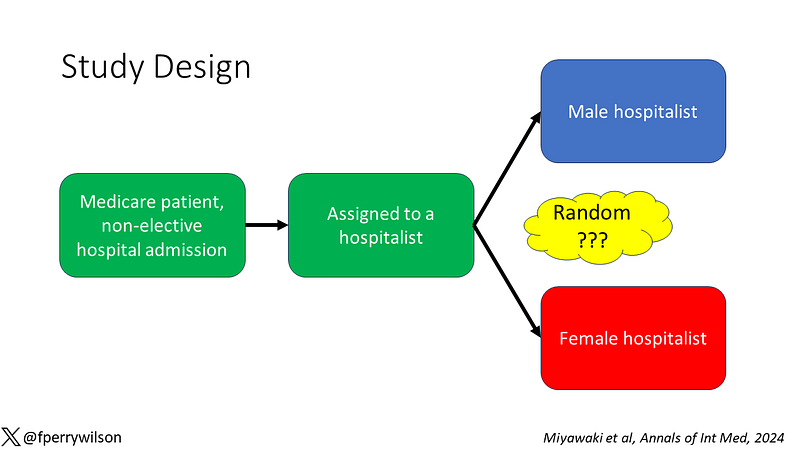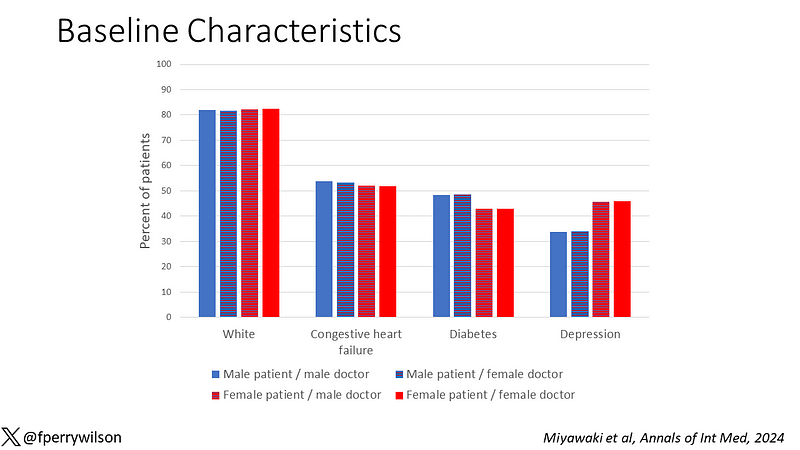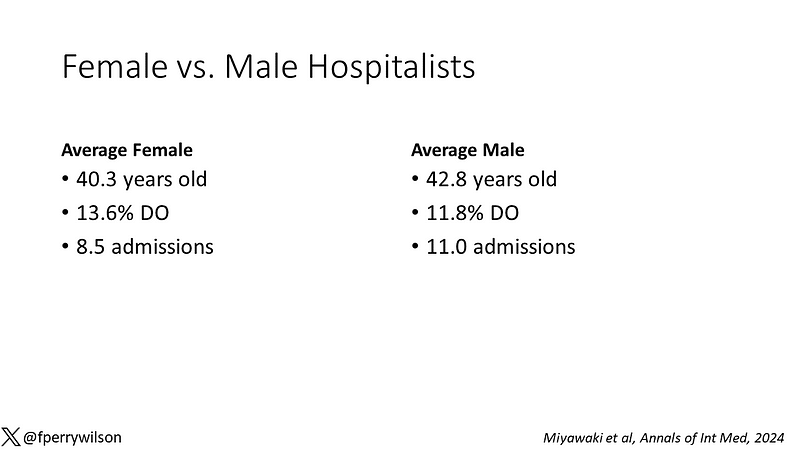Exploring Gender Dynamics in Medicine: Are Female Doctors Better?
Written on
Chapter 1: Introduction to the Gender Debate in Medicine
In recent discussions, the question arises: Are women more effective doctors than their male counterparts? A recent study suggests that having a female physician in a hospital setting could enhance patient outcomes.
This study incited a mixture of admiration and caution in me; it reveals critical insights about both medicine and societal norms, making it a sensitive topic. So, let's delve into the findings regarding whether female physicians outperform male doctors.
Section 1.1: The Complexity of Defining "Better"
At first glance, this inquiry seems daunting. What does it truly mean to be a "better" doctor? Numerous variables come into play, such as the physician's specialty, the patient's condition, and the specific clinical circumstances.
However, the paper published in the Annals of Internal Medicine employs an innovative approach to minimize bias by leveraging two key observations: firstly, a significant portion of hospital care is administered by hospitalists, and secondly, the assignment of a hospitalist during a patient’s admission is largely random.

In essence, if you are admitted for an urgent health issue, the attending hospitalist—whether male or female—is mostly beyond your control. While this scenario doesn’t constitute a randomized trial, it does present a form of pseudo-randomization.
Section 1.2: Study Methodology and Findings
Using Medicare claims data, researchers examined adults aged 65 and older who experienced non-elective hospital admissions across the U.S. By analyzing claims, they could ascertain both the sex of the patient and the attending physician, linking this to a medical provider database to determine the provider's gender.
The study aimed to evaluate outcomes across four pairs: male patient with male doctor, male patient with female doctor, female patient with male doctor, and female patient with female doctor, focusing primarily on 30-day mortality rates.

To confirm the credibility of their pseudo-randomization, the researchers analyzed data from nearly a million patients treated by around 50,000 physicians, where 30% were female. While there were differences between male and female patients, no significant disparity existed concerning the gender of their hospitalist. Thus, patient demographics—including age, race, income, and health conditions—were relatively similar across groups.
Chapter 2: Analyzing Outcomes Based on Physician Gender
The study's results revealed that female patients had a notably lower 30-day mortality rate when treated by female doctors compared to their male counterparts. Interestingly, the gender of the physician did not significantly influence outcomes for male patients. The secondary measure—30-day hospital readmission—demonstrated a similar pattern.

Although the observed effect is relatively modest, when extrapolated across millions of hospital admissions annually, the implications can be substantial.
Section 2.1: Potential Explanations for the Findings
Several hypotheses could explain these outcomes:
- Inherent Differences in Care Quality: One straightforward explanation is that, on average, female doctors may provide superior care compared to their male colleagues. My personal experience with a female doctor supports this perception, but the reasons behind it require exploration.
- Patient-Physician Interaction: Research indicates that female physicians tend to take patient concerns more seriously than males, particularly for female patients, potentially leading to more accurate diagnoses. However, quantifying this difference using administrative data is challenging.
- Confounding Variables: It’s also possible that the observed differences stem from factors unrelated to the physician's gender. For instance, female doctors generally see fewer patients annually, which could impact care quality.

- Collider Bias: The study may reflect a phenomenon where only hospitalists are included, possibly skewing the perceived quality of care by gender. This suggests that the characteristics of physicians choosing hospital medicine might differ based on gender.
- Statistical Anomalies: Finally, the small effect size raises questions about its significance. In large datasets, it's crucial to be cautious about misinterpreting statistically significant but minor findings.

In conclusion, this study provides valuable insights that provoke thought and discussion about gender roles in medicine. While it raises important questions, it also highlights the complexities of interpreting results related to gender, healthcare quality, and societal expectations.
The second video titled "Are Women Better Doctors Than Men?" discusses these findings further, providing an engaging perspective on the ongoing debate.